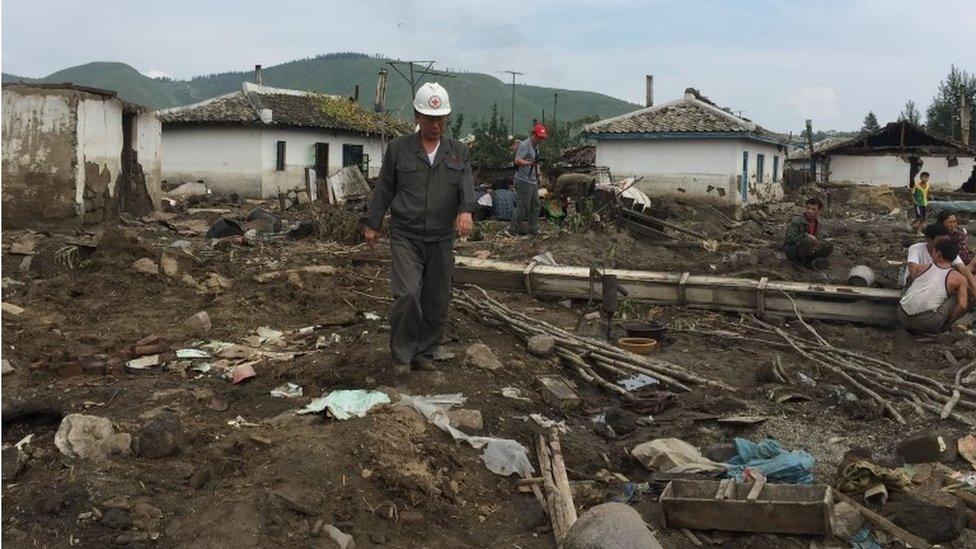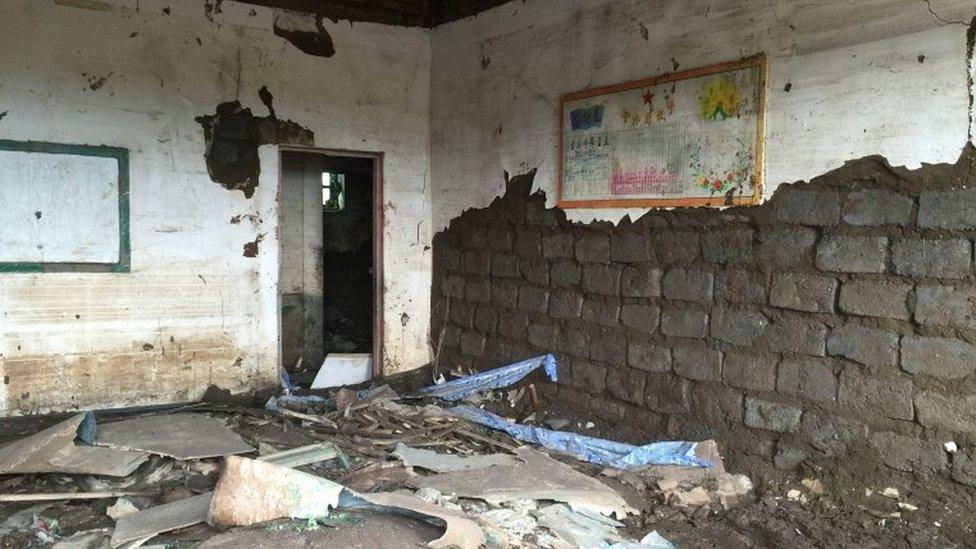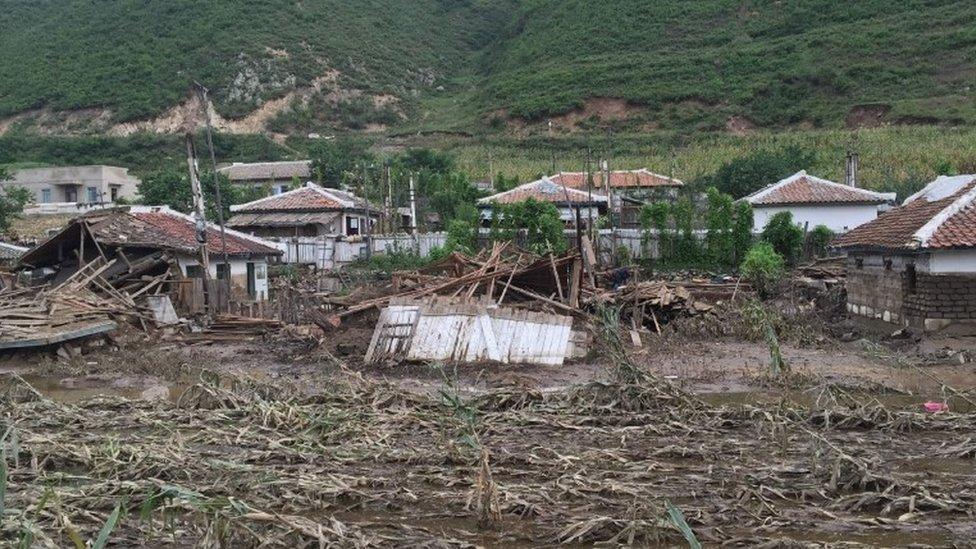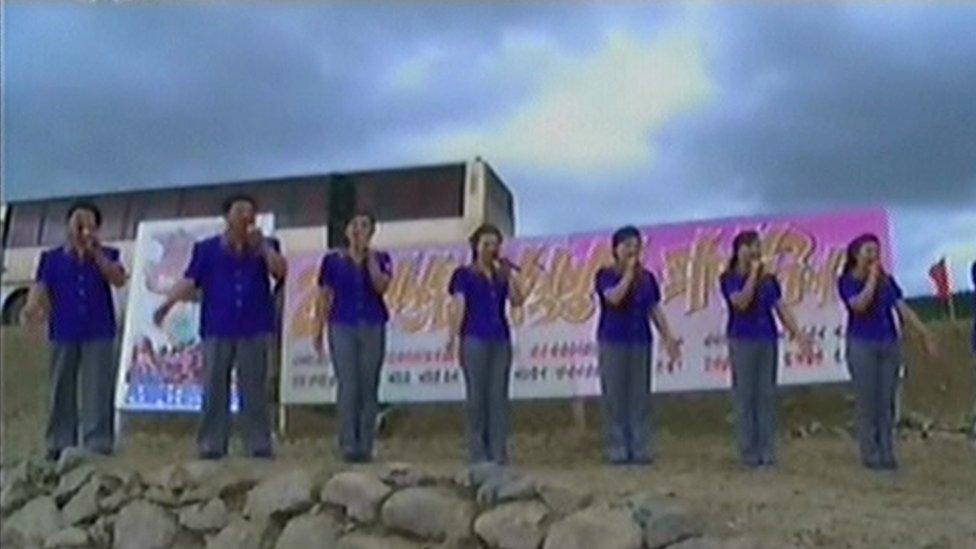North Korea floods: Tens of thousands displaced
- Published

In some areas entire villages appear to have been washed away
Aid agencies have warned that North Korea is facing a humanitarian disaster after tens of thousands of people were displaced by flooding.
The UN and the International Red Cross say the government has reported 133 deaths with nearly 400 people missing and homes and crops destroyed.
Rescue teams have been unable to reach some of the worst-hit areas.
North Korea already has chronic food shortages and is heavily dependent on foreign aid to feed its population.

As well as home, schools and other public buildings have been ruined
The UN has allocated $8m this year for humanitarian aid in the isolated country.
The flooding, triggered by the recent Typhoon Lionrock, comes as North Korea faces global anger for conducting its fifth nuclear test.
Friday's detonation, believed to be the North's biggest test so far, is expected to lead to a tightening of sanctions.
Floods 'destroyed everything'
The worst flooding is along the Tumen river, which borders China. Many areas in Musan and Yonsa counties are entirely cut off, said the UN.
Chris Staines, who is leading a Red Cross delegation in North Korea, said the region was facing "a very major and complex disaster".
"The floods came through with such force, they destroyed everything in their path," AFP quoted him as saying. In some villages close to Hoeryong City there was "barely a building left unscathed".

Destruction to crops will worsen North Korea's existing chronic food shortages
"People displaced from the floods are now in a very difficult situation and there are real risks of secondary disasters, particularly relating to people's health," he added.
The UN's Office for the Co-ordination of Humanitarian Affairs (OCHA) has said 140,000 people are "in urgent need of assistance".
Murat Sahin, a UN official in North Korea, said the scale of the disaster was "beyond anything experienced by local officials".
North Korean state media said people are experiencing "great suffering" in the region.

How is North Korea reporting the floods?

The authorities even sent a band of singers to encourage the labourers
A week after the disaster struck, state media told citizens about the extent of the floods and launched a "200-day" campaign to rebuild affected areas.
According to one report from state news agency KCNA, the campaign means that workers have been diverted from many of North Korea's set-piece construction projects and sent to Hamgyong Province to shore up river banks and build new homes.
Tuesday's main evening news showed labourers hard at work in what could easily be a scene orchestrated for the cameras. Workers dug and shifted mud in front of propaganda banners, while a uniformed musical troupe sang in the background.
However, the emergency is not the main news story in the country. That honour was given to Supreme Leader Kim Jong-un's visit to a farm, which was seen heaving with ripening crops.